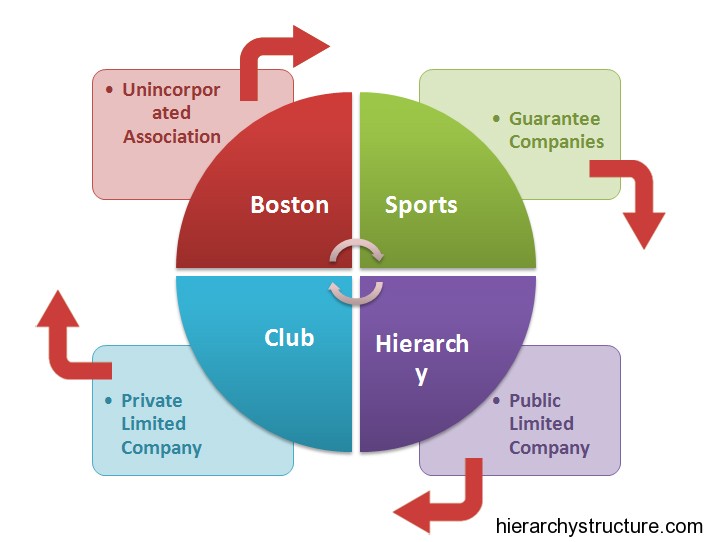Each and every sports organization is based on a hierarchical job model, in which specific tasks are assigned to each member by the superiors, in order to account for the accomplishment of the organizational goals. An organization can otherwise be defined as a social system, which is established to carry out certain common goals. Sports organization is a social group comprising of people with different specialized skills, but they are united for a common purpose of accomplishing the desired sports activities. The organizations consist of various professionals with defined roles and responsibilities. The different personnel work in a collaborative way to aid in the development and promotion of sports. Let’s take a look at some of the aspects of Boston sports hierarchy.
There are various ways to organize or structure a Boston sports club. Each and every aspect has some advantages and disadvantages and each of the aspect is intended for a particular sports group. Let’s talk about these aspects in details.

Unincorporated Association
- This is a simple and informal way to establish a sports organization.
- In this case, the group usually set up a set of rules and regulations to manage the relationships between the different members of the organization.
- In this case, the legal formalities and administrative costs are kept to a minimum.
- The rules of an unincorporated association are not showcased in any public records and thus allow the privacy of the Sports club affairs.
- This type of organizational structure is suitable for the budding clubs, who do not hold any significant property.
Guarantee Companies
- A guarantee company consists of members who elect a board of directors to conduct the affairs of the company.
- The executives reports to the board of directors.
- There can be a public or a private guarantee company.
- A public limited company should have a minimum of seven members with no upper limit on the number of members.
- A public limited guarantee company does not have a share capital.
- A private limited company can hold a maximum of 99 members.
- A private limited guarantee company must have a share capital.
- This type of Boston sports hierarchy system is suitable for the larger clubs, which holds certain property and governing bodies.
Private Limited Company
- A private limited company has members who hold shares in the company.
- A private limited company limited by shares can have a maximum of 99 members.
- The rules and regulations of the company are contained within the memorandum, which is filed in the Companies Registration Office.
- The company has a defined set of rules to deal with the conduct of the organizational affairs.
- This level of the Boston sports hierarchy has the power to raise finance by attracting investors by issuing shares and debentures.
- This is suitable for large clubs wishing to make a profit and to distribute that profit among their members.
Public Limited Company
- A public limited company offers its shares to the public.
- A public limited company can directly sell its share through stock exchange.
- In this part of the Boston sports hierarchy, the voting rights are limited to a number of specific shares so as to retain the control of club in a few hands.
